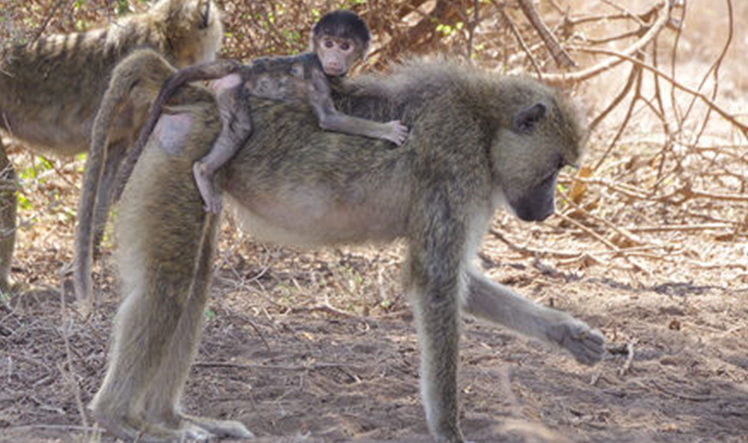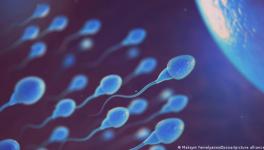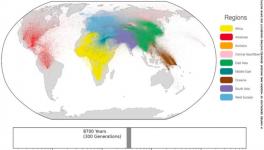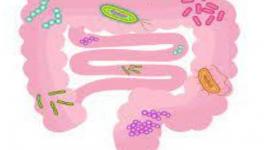‘Genetics Vs Environment’ Debate: Findings on Baboon’s Gut Microbial Make-up Throw New Light

Image Courtesy: Science
The latest research on baboon has come out with an interesting finding -- the gut microbiota of this species is determined not by the genetics of baboon, but by soils that they dwell upon. Gut micorbiota is the vast ecosystem of microorganisms living in the gut which is used in digesting food, fighting infection, breaking down toxins etc.
Published in the Proceedings of the Royal Society B, the research was primarily aimed to find out how the gut microbial make up varies across different populations of baboons. The researchers collected stool samples from 14 different baboon populations in Kenya’s primate hybrid zone. This Kenyan area contains different baboon populations and a place of interbreeding between the yellow baboons (Papio cynocephalus) and anubis baboons (P.anubis). The stool samples give the profile of the gut microbiota in different populations.
The researchers, along with analysing baboons’ DNA, looked into various other environmental characteristics from where the stool samples were collected. Among the environmental factors like vegetation, elevation, soil and climate; soil happened to be the winner in giving rise the variety of gut microbial make-up in different baboon populations. Soil was found to be three times better at predicting the differences than the physical distance between populations and 15 times better at predicting differences than genetic factors. It was also found that baboons living in areas with salty soil have less diverse gut microbiotas.
Baboons feed on a variety of leaves, fruits, seeds, roots and alongside insects and small vertebrates which usually come out of soils and thus provide a perfect entry of the soil microbes to colonise the gut. Scientists, in their attempt to move forward, plan to investigate the mechanism of the survival of these microbes once they enter an animal’s intestine.
Why the Current Findings are Important?
The micro-organisms residing in the gut of mammals, including humans, are important from the perspective of health. The microorganisms are involved in digestion, immune responses and lately it has been found that these are involved in brain health as well. A disruption in the profile of the gut microbiome can lead to severe health problems. Also, the variety of these micro-organisms is a very important factor.
There have been researches now a days where microbial transplantation is seen as a possible therapy to treat various diseases that are related to the loss of the gut microorganism. Fecal transplantation is a way thought to meet up the deficiency of gut microbiota.
However, it still remains to be debated whether gut microbiota is related to the genetic architecture of a person. While many researchers put forward the idea that genetics determines the gut microbial make-up of an individual, many findings go deviant from it, saying that it is not necessary that only genetics determine the gut microbiota. The present findings are a direct evidence in favour of the view that it is environment-related food habits that shape up the microbial make up.
Get the latest reports & analysis with people's perspective on Protests, movements & deep analytical videos, discussions of the current affairs in your Telegram app. Subscribe to NewsClick's Telegram channel & get Real-Time updates on stories, as they get published on our website.
























